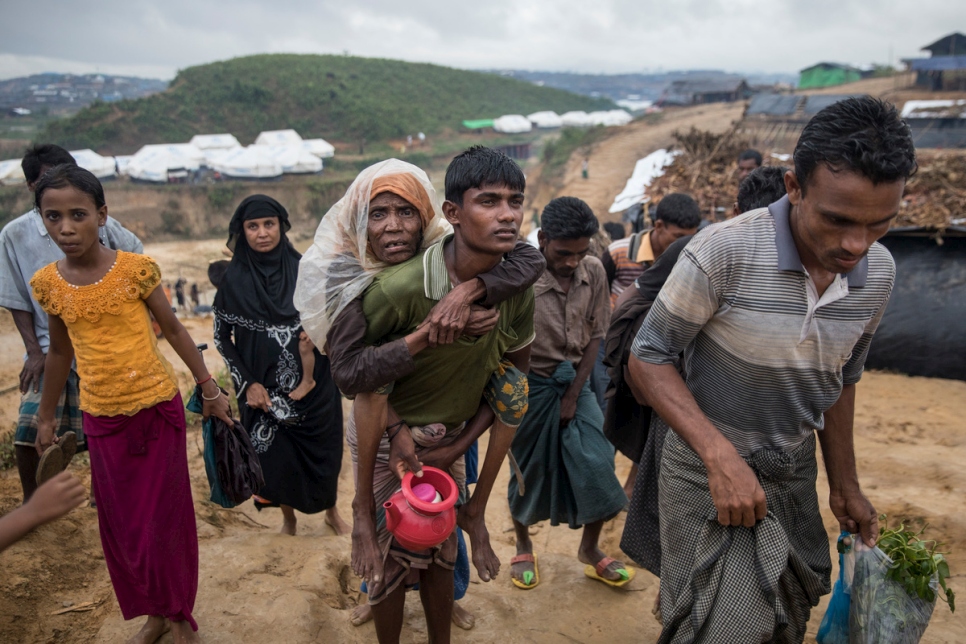Alwaght- The United Nations Secretary General has expressed concern over an agreement between the Bangladesh and Myanmar governments to repatriate several hundred thousand Rohingya Muslim refugees within two years.
Bangladesh state media reported on Wednesday that the first batch of Rohingya would be sent back to Myanmar next week.
The UN secretary general, António Guterres, said the repatriation deal finalised in the Myanmar capital, Naypyidaw, on Tuesday also needed to clarify whether Rohingya would be permitted to return to their homes or live in specially built camps.
“The worst would be to move these people from camps in Bangladesh to camps in Myanmar,” Guterres said at a press conference at the UN headquarters in New York.
The deal included no role for the UN refugee agency, he added, making it difficult to “guarantee that the operation abides by international standards”.
About 870,000 Rohingya Muslims fled to Bangladesh after army crackdowns in Myanmar’s northern Rakhine state starting in October 2016 and August last year. The Muslim minority have faced decades of systemic oppression in Myanmar.
Humanitarian groups have also raised alarm over the agreement between the Bangladesh and Myanmar governments.
Paul Ronalds, the chief executive of Save the Children Australia, said Tuesday’s agreement was “still very sketchy” and did not address the conditions the Rohingya would face on their return.
Amnesty International described plans to return the Rohingya refugees in Bangladesh as “alarmingly premature”. “The Rohingya have an absolute right to return to and reside in Myanmar but there must be no rush to return people to a system of apartheid. Any forcible returns would be a violation of international law,” said James Gomez, a regional director for the organisation.
Last month UN High Commissioner for Human Rights Zeid Ra‘ad al-Hussein said genocide charges could be brought against Myanmar following the country’s campaign against the country's Rohingya Muslims.
He noted that attacks on the Rohingya had been “well thought out and planned” and he had asked Myanmar’s de facto leader Aung San Suu Kyi to do more to stop the military atrocities.
Zeid has already called the campaign “a textbook example of ethnic cleansing” and asked rhetorically if anyone could rule out “elements of genocide”.



























